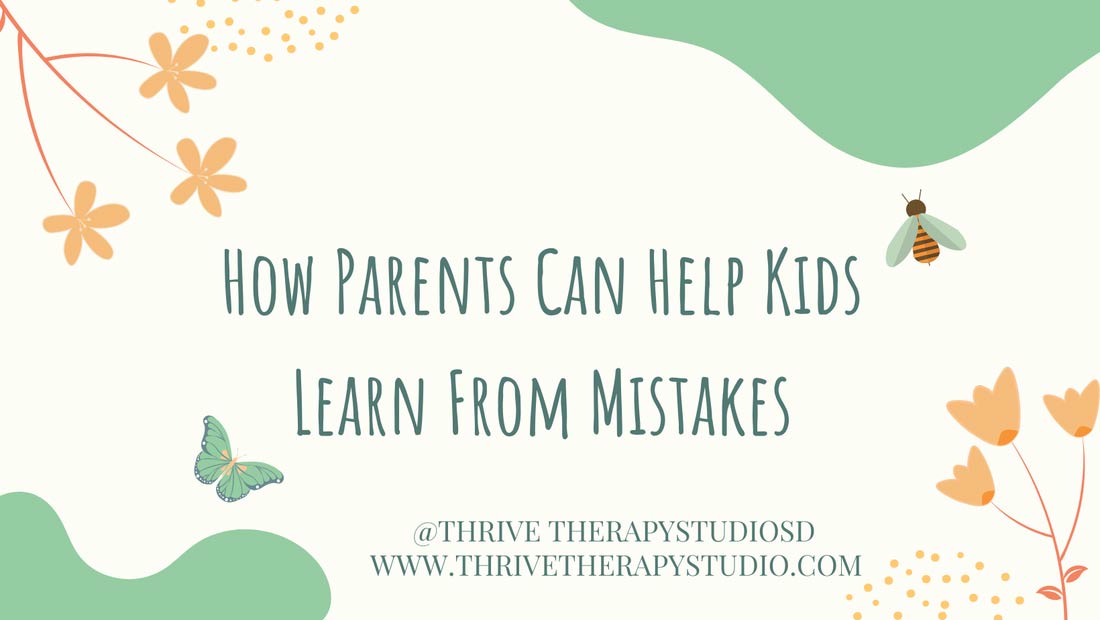So your child made a mistake. Now what do you do? You may have seen it coming or maybe it was unexpected. Maybe their mistake will affect others. Your child might feel defeated, hopeless, frustrated, or angry. As adults, we know that there is always something one can learn from a mistake, but how can we help kids learn from theirs? Luckily, there are often several teaching moments parents can incorporate in these scenarios.
1. Allow time for a child to calm before talking about the mistake. This can be one of the most helpful places to start. It is hard to take in information or think something through when emotions are high. Allowing kids time for their emotions to settle will likely make the conversation more effective. Saying something like “would you like to take space for a bit?” can communicate that you understand they might not be ready to talk. This decreases the pressure to share their thoughts, concerns, or letdowns until they are ready. Using the phrase “taking space” can also be used whenever emotions are high. It also allows a child (or us adults) time to reduce the chances of saying something we might later wish we hadn’t.
2. Praise their ability to admit they made a mistake. It is hard to own it! Working to ensure your response does not shame them can be huge because it increases the likelihood that they will share future mistakes. You can try saying “I’m proud of you for sharing you” or “I’m glad you could share this, it shows a lot of bravery”.
3. Help them reflect on what they learned. This demonstrates that even with disappointment or frustration, there is always a take away from a mistake. You can help them identify one thing they have learned that will help them the next time they are confronted with a similar challenge then you can talk about how they’re feeling. Depending on their ability to identify their own emotions, you can try reflecting “I can see how disappointed/sad/angry you are right now”.
4. Use this moment of humility to help them learn to be compassionate with their peers when peers make mistakes. You can first help your child recognize how they would like to be treated when they make a mistake. Then, you can help them think about how their classmates or teammates would like to be treated when making mistakes. This allows your child to learn the importance of showing kindness to classmates or teammates when they make mistakes. Helping them recognize that as your child wants to be supported and not judged, your child can learn to show this same compassion to peers.
5. If they hurt someone, plan on how to apologize. You can help them learn how to make amends by learning how to apologize well. This can consist of admitting the mistake you made, sharing that you are sorry, stating you want to ensure this does not happen again, and asking for forgiveness. I would also add on helping them learn to let it go after they are forgiven.
6. Practice, practice. If their mistake is something they are able to practice, then help them practice it. Saying “okay, you made a mistake here, so let’s practice more to help it not happen again!” can be a positive reframe.
7. Model learning from mistakes. How do you respond to your own mistakes? Are you forgiving of yourself, or do you tend to talk down to yourself? Increasing your awareness of how you respond to your own mistakes will help children learn how to respond to theirs.
While making mistakes is rarely enjoyable, there are so many things we can learn from them! Helping children notice the opportunities, rather than them only seeing their disappointments or frustrations, can increase their hope for future outcomes.
Reach out to start
your healing journey


